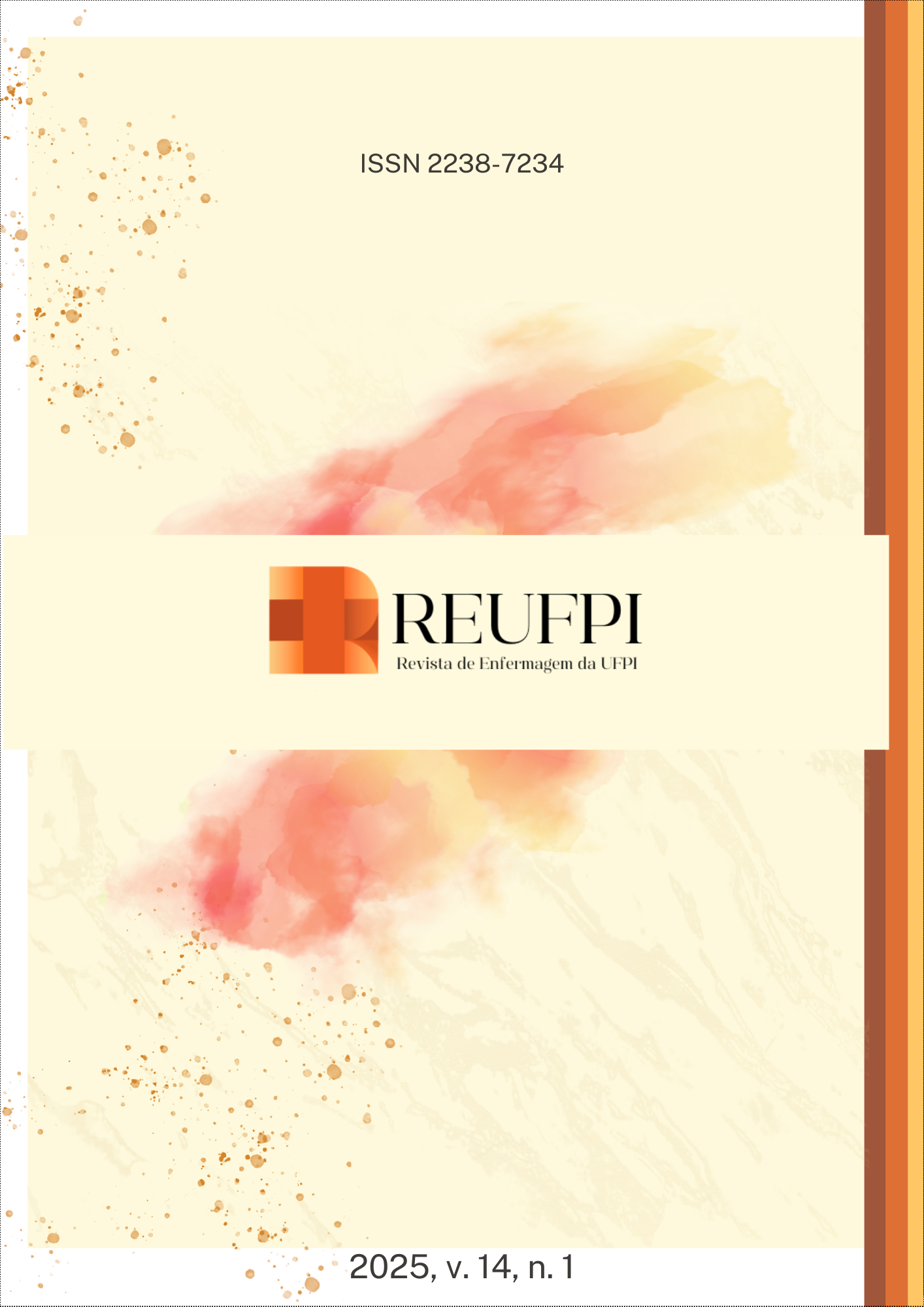Visão de esperança: uma perspectiva de enfermagem sobre a saúde global para populações com circunstâncias de vida complexas
DOI:
https://doi.org/10.26694/reufpi.v14i1.6799Palavras-chave:
Minorias Desiguais em Saúde e Populações Vulneráveis, Saúde Global, Brasil, Canadá, EnfermagemResumo
Motivação para usar o conceito de circunstâncias de vida complexas na pesquisa em enfermagem
Circunstâncias de vida complexas referem-se a determinantes sociais da saúde que contribuem para as desigualdades entre populações carentes, aumentando sua suscetibilidade a resultados de saúde precários. Essas circunstâncias incluem a falta de moradia, o uso de substâncias, ser HIV positivo ou estar em risco, violência, trauma e pobreza, entre outros indicadores.(1,2) As populações que vivem nessas circunstâncias são mais suscetíveis a desvantagens de saúde, sociais e climáticas.(1)
Descrevemos nossa colaboração internacional de intercâmbio acadêmico e de conhecimento em enfermagem Brasil-Canadá, com o objetivo de gerar soluções de cuidados de enfermagem para pessoas que vivem em circunstâncias de vida complexas. Esta colaboração cria uma Comunidade de Prática que facilita a mentoria multidirecional, o florescimento da equipe e o coempoderamento.
Globalmente, as Comunidades de Prática produzem resultados favoráveis em pesquisa e acadêmicos.(2–4) Silverstein et al. utilizaram uma prática de saúde global para maximizar as competências dos profissionais de saúde que trabalham com populações vulneráveis.(3) Essas práticas diminuíram o isolamento profissional, melhoraram a colaboração entre pares e avançaram o conhecimento clínico e as melhores práticas por meio de parcerias fortes.(3) Fruchtman et al. descreveram a criação de uma comunidade digital de prática como uma estratégia para descolonizar parcerias globais de saúde, promovendo o aprendizado multidirecional entre pares e a coprodução de conhecimento.(4)
Nossa visão de esperança se utiliza das forças de nossa equipe e soluções de enfermagem para melhorar a saúde de pessoas perinatais e idosos vivendo em situações de vida complexas no Brasil e no Canadá.
Abordagem entre países para disseminar o conceito de circunstâncias de vida complexas na pesquisa em enfermagem
Enquanto contribuímos para o conhecimento global em saúde e enfermagem, nossa equipe reconhece que a visibilidade e a colaboração podem avançar as conversas sobre circunstâncias de vida complexas entre pessoas perinatais e idosos em níveis micro, macro-regional, nacional e internacional, além das publicações científicas. Acreditamos que é essencial unir grupos de estudo acadêmicos e comunitários para disseminar a inovação de forma transversal. Por meio do nosso projeto colaborativo Brasil-Canadá, priorizamos o fomento ao aprendizado mútuo e aos diálogos internacionais sobre viver com circunstâncias de vida complexas.
[...]
Referências
Maposa S, Galiza FT, Diego Marques Santos J, Carvalho Pereira L. Time for a strengths-based dialogue on the needs of people living in complex life circumstances. Rev Enferm Atual In Derme. 2025;99(Ed.Esp):e025029. DOI: 10.31011/reaid-2025-v.99-n.Ed.Esp-art.2494
World Health Organization. A Global Health Strategy for 2025–2028 [Internet]. 2025 [cited. Available from: https://cdn.who.int/media/docs/default-source/documents/about-us/general-programme-of-work/global-health-strategy-2025-2028.pdf
Silverstein A, Benson A, Gates C, Nguyen D. Global community of practice: A means for capacity and community strengthening for health professionals in low- and middle-income countries. J Glob Health. 2022;12:04034. DOI: 10.7189/jogh.12.04034
Fruchtman CS, Khalid MB, Keakabetse T, Bonito A, Saulnier DD, Mupara LM, et al. Digital communities of practice: one step towards decolonising global health partnerships. BMJ Glob Health. BMJ Publishing Group Ltd; 2022;7(2). DOI: 10.1136/bmjgh-2021-008174
Downloads
Publicado
Como Citar
Edição
Seção
Licença
Copyright (c) 2025 Revista Enfermagem UFPI

Este trabalho está licenciado sob uma licença Creative Commons Attribution 4.0 International License.
Autores mantém os direitos autorais e concedem à REUFPI o direito de primeira publicação, com o trabalho licenciado sob a Licença Creative Commons Attibution BY 4.0 que permite o compartilhamento do trabalho com reconhecimento da autoria e publicação inicial nesta revista.

























